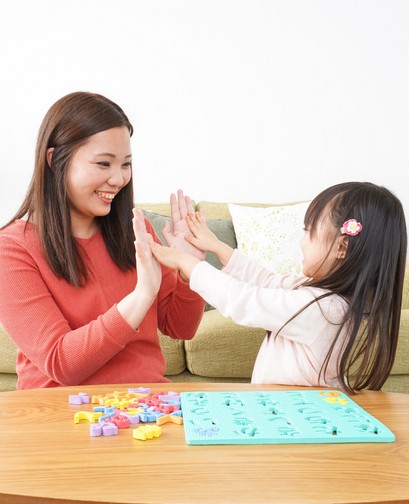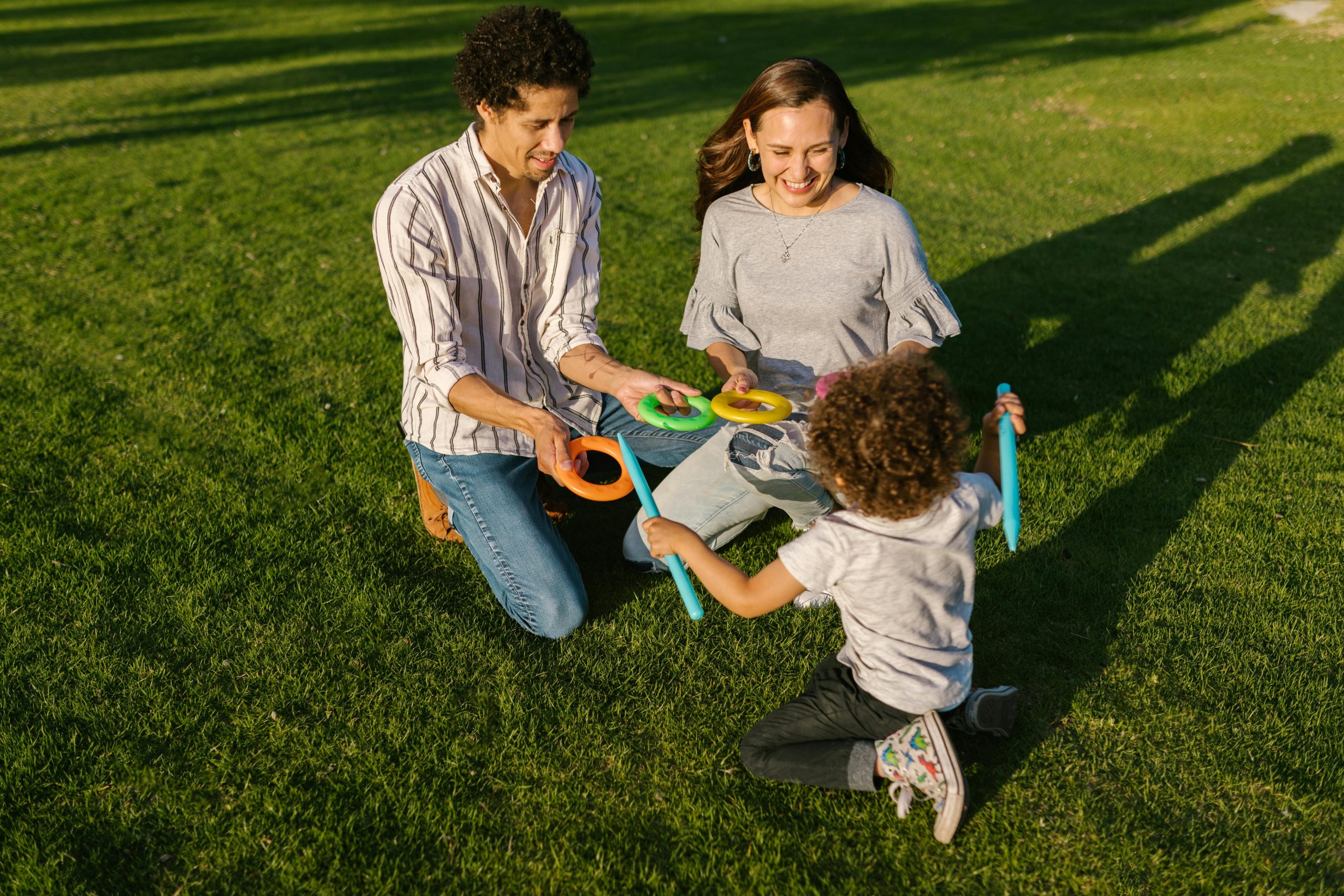It’s possible that you’re here, having only recently learned that your child is Autistic. Perhaps that news has come as a shock to you, or maybe you’ve had a hunch for some time now.
It’s also possible you’re here having known about your child’s Autistic identity for some time.
Or maybe you yourself are Autistic and so your understanding of your child’s Autistic identity is shaped by your own self-knowledge and experiences.
Whether you’re new to Autism, or have been walking the journey for a while, we want to help and support you.
Research tells us that being a parent of an Autistic child can be challenging, regardless of whether we are an Autistic parent or not, and whether we are new to Autism… or not. These challenges don’t necessarily arise because our child is Autistic, but because we have to parent our Autistic child within systems, like the education system, that are not designed for Autistic people. We also know that parents of Autistic children can find extraordinary joy, satisfaction, and growth in parenting their Autistic children. For an Autistic child, their parents are often their “safe” people (the people they trust to know and meet their needs), and the people with whom they share the deepest and most abiding connection.
That doesn’t mean that parenting an Autistic child is without challenges. Balancing the needs of everyone in our family, including our own, can be a real juggling act, and attending to our own self-care and needs might seem like a distant dream. Many times, we can feel helpless, either in not being able to move systems that refuse to support our children, or in not knowing how best to support them. And for many of us, there is an increased mental load in being an advocate in the many different environments in which our Autistic child exists, and in our efforts to parent consciously with understanding, respect, and love.
Sometimes, it can feel isolating to be a parent of an Autistic child, like you are alone on a journey that no one else can really understand. Whilst no one walks your unique path, with the exact complexities of your life, please know that you are not alone. There are many, many other parents from whom you can learn, and on whom you can lean, to support you in your parenting journey.

Let’s start with a question for you to consider… where has your knowledge about Autism come from? Chances are that your ideas about Autism have come from many sources, including diagnosticians, therapists, mainstream media, pop culture, social media, to name but a few. One of the key elements that tends to be missing from these sources of knowledge is input from Autistic people themselves. Autistic adults used to be Autistic children.
So, one of our primary tasks as a parent of an Autistic child is to learn about Autism from Autistic people – what it is, how it presents in your child, and how you can help your child to recognise their unique strengths and navigate the challenges that they may face.
We have many workshops, courses, free articles and resources from which you can learn from Autistic people and from other parents. You might like to start by learning more about Autism generally, or you might like to read some articles about specific elements of relevance to your child, such as sensory, social, or communication differences.
The more you learn, the more empowered you will be to make informed decisions, educate others and advocate for your child and your family. Please keep in mind, as you take on this task, that you cannot possibly learn everything all at once. Learning is a lifelong journey! As you learn more – and as your child grows and matures and is better able to communicate their needs to you – you will become more confident supporting their Autistic needs, and navigating these Autistic differences within a non-autistic world.

If your child has been recently diagnosed, it can take time to process. Very often, you may be trying to parent and understand a neurodivergence that you don’t know much about simultaneously. And trying to find new ways to support everyone in your family – including you –might seem unattainable right now.
However you’re feeling in this moment, it’s important to remember that your child is the same person they have always been. Your Autistic child was born Autistic, so you’ve been parenting an Autistic child since the day they were born, even if you didn’t know it. So, in some ways, nothing has changed – you now just have a new insight to help you better assist your child to navigate the world around them, and for you and them to understand what makes them the wonderfully unique person that they are.
Like many parents, you might be feeling anxious, lost, overwhelmed, or just unsure where to start or what to do next in these early days and months. Let us reassure you that you’re doing just fine! You’re here, you’re researching, you’re wanting to learn more… and that makes you a terrific parent, and one that will be instrumental in helping your child to understand their Autistic identity.
Maya Angelou once said, that we “do the best you can until you know better. Then when you know better, do better”. As parents, wherever we are on our parenting journey and whoever our children are, we make the best decisions we can, with the information we have, and with our children’s best interests at heart. But, when it comes to our child’s Autistic identity, it’s important that we educate ourselves about Autism so that we do know better, and so that we can do better – for our child, our family, and ourselves. This will build the foundation for us to move forward with positivity, hope and optimism.

Not sure where to begin? Join our founder and Head of Research, Dr Melanie Heyworth, for an engaging introductory webinar on parenting Autistic children. In this online session, Melanie redefines Autism from an Autistic perspective and explores how embracing neurodiversity can reframe your thinking about Autism. This new understanding will then support you to parent with greater patience, empathy, and respect, fostering the wellbeing of both your Autistic child and yourself as a parent.
Webinar Topics:
You will also receive a PDF including further reading and resources.
Cost: $39 AUD
Delivery: On-demand webinar, so you can learn at a time that works best for you.
Duration: 2.5 hours

Most parents of Autistic children – regardless of your child’s age, or how long you’ve known they’re Autistic – will be thrust into the role of “advocate” sooner or later. In fact, advocating for an Autistic child is often a significant burden on parental mental health, especially when the systems within which you’re advocating are just not designed with Autistic needs in mind, or may not understand Autism adequately.
As the parent of an Autistic child, you will deal with many different systems on your child’s behalf or in support of them. This includes schools, educational departments, doctors or medical contexts, therapists, community groups, workplaces, and funding and support bodies. As your child’s advocate, remember that (apart from your child themselves), you know your child best. You are the “natural authority” in your child.
As an advocate, you can draw on your own knowledge, Autistic lived experience, research, your broader support team, and your knowledge of your child’s rights as a disabled person.
In most countries, Autism is defined as a disability and your child will thus be protected by the relevant disability discrimination legislation in your country. In Australia, Autistic people are protected by the United Nations Convention on the Rights of Persons with Disabilities (or UNCRPD), the Disability Discrimination Act (or DDA), and (if they are in education) the Disability Standards for Education. It’s worth reading these documents, so that you understand what your child has a legal right to expect.
Here are some common questions that we receive which might resonate with you, too. If you have any other queries, we’d be happy to assist – just get in touch with us by clicking the button below.

The Reframing Autism team would like to acknowledge the Traditional Owners of the lands on which we have the privilege to learn, work, and grow. Whilst we gather on many different parts of this Country, the RA team walk on the land of the Awabakal, Birpai, Whadjak, and Wiradjuri peoples.
We are committed to honouring the rich culture of the Aboriginal and Torres Strait Islander peoples of this Country, and the diversity and learning opportunities with which they provide us. We extend our gratitude and respect to all Aboriginal and Torres Strait Islander peoples, and to all Elders past and present, for their wisdom, their resilience, and for helping this Country to heal.